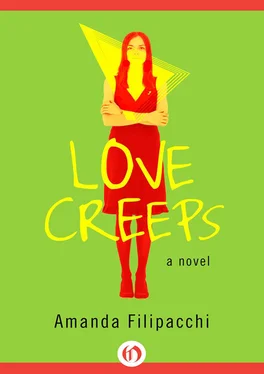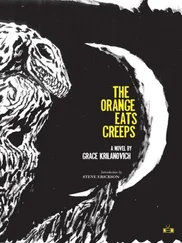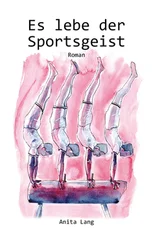Misfortune eats at one’s self-confidence. Alan’s strong new self had gotten weaker. He had learned the falseness of the saying “What doesn’t kill you makes you stronger.” He now knew that what didn’t kill you made you weaker and weaker. He was no longer in touch with the friends he had made during his new life, which was now old and gone. His recovering stalker friends had stopped calling him, because he lacked the energy to give them pep talks and help them resist the temptation to stalk. He himself had not been gripped by an urge to resume stalking, but so what? He wasn’t happier now than when he was a stalker. He was depressed and lonely and he shamefully admitted to himself that being followed was somewhat comforting. So dim did his life seem to him that his stalkers had become sparks of light. Even though he rarely spoke to them, he thought of them as his support group.
It had taken Roland a couple of weeks to adjust to living without the cyanide, without the reassurance that he could end things at a moment’s notice if he wanted to. He felt vulnerable. But he also felt closer to his fellow beings, as though they were all in the same boat. He and they now had something important in common: They weren’t carrying cyanide on their persons. He still wore the locket so that he wouldn’t be reminded, as often, of the cyanide’s absence.
As for being a murderer, it wasn’t much on his mind. He found the topic uninteresting; it wasn’t suicide, after all.
He hadn’t committed any grave offenses since then. Granted he had tried to shoot Alan with a gun that might have been loaded, but it hadn’t been — thank God, because he couldn’t have passed that off as suicide. He had carried Lynn out of Alan’s apartment against her will, but he’d let her go as soon as they hit the sidewalk — it’s not easy for a man to carry a screaming woman down the street. She had then taken a cab home. He’d been glad he’d at least gotten her out of Alan’s building.
The next day the stalking chain had resumed as if nothing had happened.
Patricia was surprised that Lynn, despite stalking Alan every day and being in a perpetual state of rejection by him, was still applying to clubs that wouldn’t want her as a member, just to play it safe.
Alan, Lynn, and Roland continued to give money to Ray the homeless ex-psychologist who still held his breath and closed his eyes when the stalking chain passed him, particularly now that he had seen one of its links act so strangely, perform chocolate-covered naked ranting on a wall with a rat, before being whisked away by cops.
One snowy winter day, Alan stopped in front of the homeless man longer than usual, wondering why his eyes were so often closed and his breath so often held. Alan took off his coat and placed it in the arms of the homeless man. It was a beige shearling coat that Alan had worn for three years and didn’t want anymore. Ray held the coat, stunned. He didn’t usually accept presents, since his homelessness was relatively intentional, but a present from a link in the stalking chain was hard to resist.
Ray cleared his throat. “What is this?”
“A gift. Put it on, won’t you?” Alan said.
Ray didn’t move. He had to admit he was somewhat curious, somewhat seduced, despite his better judgment, despite knowing full well that deep inside, this nut was probably terribly banal.
Alan took back the coat, walked behind Ray, and held it up for him to slide his arms into. After a moment’s hesitation, Ray placed his hand in the armhole. He could not help relishing every second as the enticing crazy person slid the sleeve up his arm. And then the other.
“There, that looks good, it fits you well,” Alan said. What he meant, of course, was, “It fits you well for a coat that’s two sizes too small for you.”
“Thank you,” Ray said. It was the perfect opportunity for Ray to ask Alan why the stalking order had changed, but he did not permit himself to ask any questions. He would not pander to his curiosity disorder.
Alan smiled and walked away.
Lynn witnessed the gesture and ruminated. She came up with an idea that excited her. In order to impress Alan, she paid a gourmet store on the corner to give the homeless man two meals a day, in a paper bag, for a month. It was not an inexpensive gesture, but if it had any chance of impressing Alan, it was worth it.
After handing Ray his first lunch and informing him of the ones to come, Lynn said to him, “The only thing I ask in return is that you mention this to Alan. Alan is the man who gave you your coat. Bon appétit .” She smiled and walked away.
As soon as Lynn was far enough away, Roland stopped in front of the homeless man. “What did that woman say to you?”
“She said she paid that store to give me two meals every day for a month.”
Roland walked away, dropping a button and ruminating. He came up with an idea that made him smile hesitantly and invisibly.
Roland rented an apartment for Ray. He broke the news to him on the street the next day.
“Listen, I don’t know how you feel about sleeping on the street,” Roland said, “and I don’t want to seem presumptuous, but I got you a small studio for the winter if you want it. You’ll owe me nothing except to speak well of me to Lynn, and to tell her about this little favor I’ve done for you.”
Ray didn’t respond at first. Finally, he said, “Sure, why not.”
He had had the willpower not to ask questions, and still did, but he did not have the willpower to refuse these advances. He knew he should turn down the presents, he knew it was fate, taunting him, but he couldn’t.
He went to the apartment wearily.
Despite his coat, meals, and studio, Ray still stood at the corner to beg. The next time he saw Alan, he felt somewhat obligated to tell him of Lynn’s gift of the meals. And while he was at it, he also mentioned Roland’s gift of the winter studio. Alan stood, dumbstruck, in the snow. Ray found it irresistible to add, “Feel free to visit me sometime.”
Alan was upset by Lynn’s and Roland’s gestures, because he knew that this beggar would eventually feel let down when the two stalkers stopped supporting him. He felt responsible for having unwittingly started this chain reaction. To assuage his guilt, Alan bought Ray some clothes. And when he visited Ray’s new place and saw the squalor he lived in, meaning no TV and not much furniture, he went shopping for a sofa, a table, and chairs, and had them delivered to Ray’s.
When Lynn saw how much the other two had done for the homeless man, she wanted to surpass their gestures, in order to impress Alan, but she didn’t know how to. Then she figured he needed a social circle, so she gave him one by throwing a party at Ray’s place.
Roland was in a corner, at the party, talking to a man he didn’t know. “We’ve created this creature by the force of our group energy. It’s as if we’ve given birth to a being. It is our child,” he said, referring to Ray.
“Isn’t that a little presumptuous?” replied the man, popping a peanut into his mouth. “I mean, giving food and shelter to a homeless person suddenly makes you a creator of life?”
Ray talked to the guests politely, but they didn’t interest him; they were just ordinary people — not like his nuts. His eyes couldn’t help seeking out the nuts and observing them. He was falling for them, he realized. If he were to discover now that their core was banal (and he still thought it probably was), he would be frustrated. Therefore, he continued not asking them questions. People’s business was their business. Knowing was disappointing.
Curiously, what was almost as extreme as Ray’s curiosity about the nuts, was the nuts’ lack of curiosity about him. They felt guilty about their complete disinterest in him. They knew they really should ask him one or two questions about his life, his past, whatever, just to seem polite, but they kept procrastinating, afraid of a long answer, a boring answer, afraid of getting to know him. During the party, decency didn’t allow them to postpone asking him a question any longer. They formed a semicircle around Ray. Roland held his hand behind his back and dropped a paper clip.
Читать дальше












